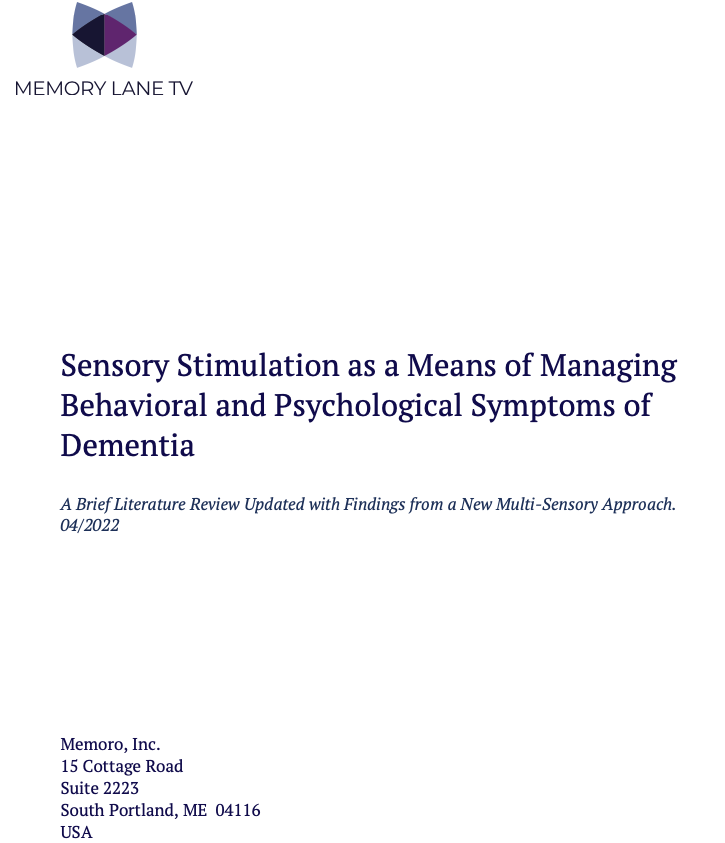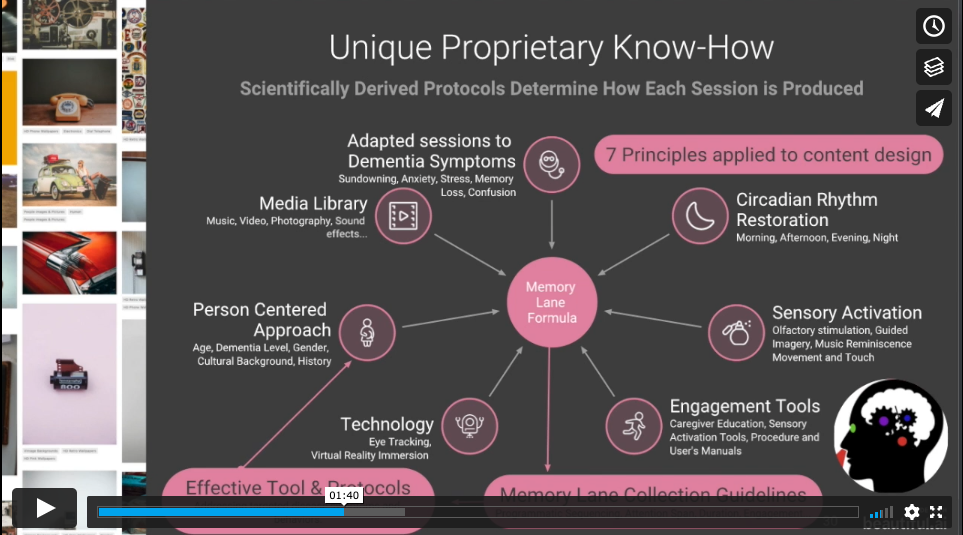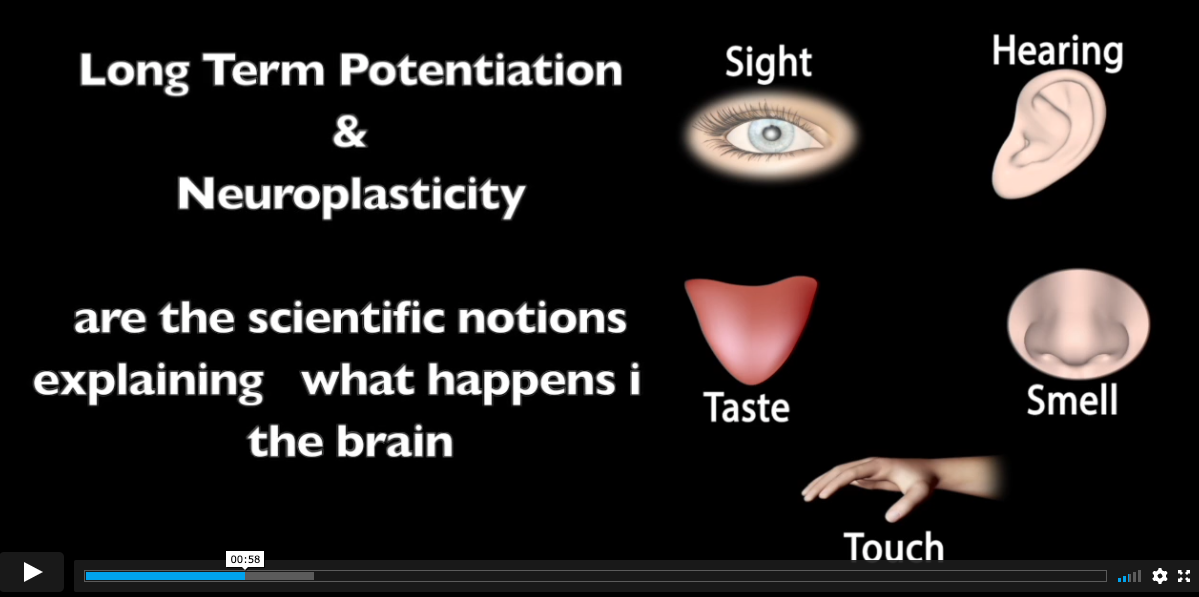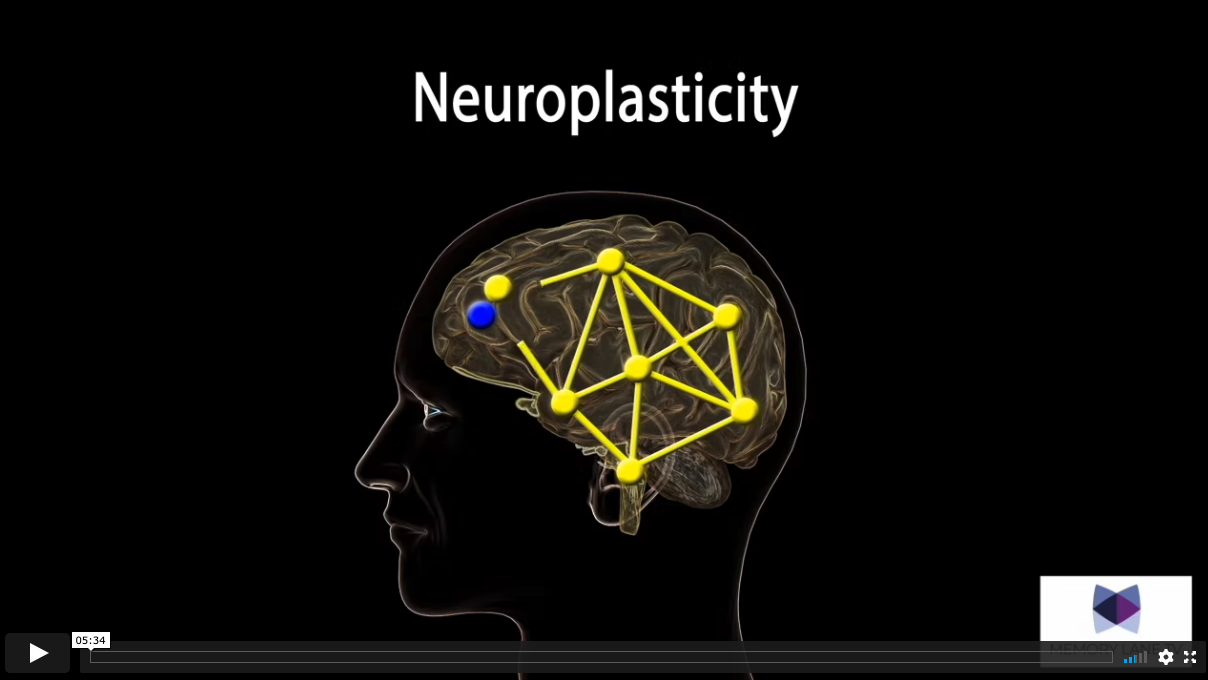Evidence-Based Research
The Science Behind Our Multisensory Programming for Memory Loss
Watch our short film: How does Memory Work and Affect the Brain and the Body?
This in-depth, informative film will help you understand how memory works, how memories are formed, and how that understanding illuminates the design of Memory Lane TV’s therapeutic content.
Receive our literature study
on Multi Sensory Stimulation
Memory Lane TV began as a passion project rooted in personal experience and quickly became a powerful, non-pharmacological intervention rooted in the latest scientific research on dementia, Alzheimer’s, and memory loss. We work closely with medical professionals in memory care settings to take advantage of the benefits of guided imagery and mindfulness training to make a measurable difference in mood, symptoms, and relationships.
More than 1,000 people experiencing memory loss from around the world were directly involved in the design, development, and user testing of Memory Lane TV therapeutic content, integrative care, digital interventions, and a person-centered approach.
Would you like to learn more about our research and how we developed our intervention? Please contact us and we will send you our PDF on the research we conducted and our multi-sensory approach.

Watch our short film: The Genesis of Memory Lane Tv and Multi-sensory Stimulation to help Cognitive Decline and Quality of Life.
Designed by artists, producers, and memory care experts. Developed in clinical care settings. Mind body medicine delivered digitally using common, everyday technology.
What is Long Term Potentiation?
Long-term potentiation (LTP) is a process involving persistent strengthening of synapses that leads to a long-lasting increase in signal transmission between neurons. It is an important process in the context of synaptic plasticity. LTP recording is widely recognized as a cellular model for the study of memory.
Watch our short film: What is Neuroplasticity and how can Non-Pharmacological Treatment change Brain Activity?
Non-pharmacological treatment (NPT) changes brain activity in patients with dementia, NPTs improved cognitive functions and can increase neuroplasticity of the brain, ie the ability of the brain to form and reorganize synaptic connections, especially in response to learning or experience. But how does that work exactly?



